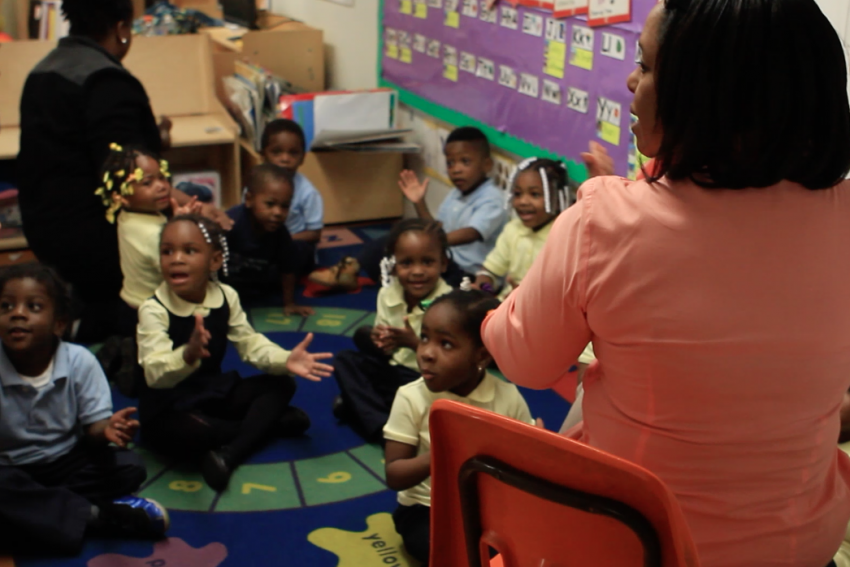Our Goal
The Nicholson Foundation worked to ensure that every young child in New Jersey has access to safe, quality care and education.
The Importance of the First Few Years of Childhood
Research shows that experiences between birth and age eight lay the foundation for later abilities to learn, work, and adopt healthy behaviors. There are no do-overs in childhood. During the first three years of life, the brain develops more rapidly than at any other time during a person’s entire life. Studies have demonstrated that early experiences profoundly affect brain development, and children raised in environments that don’t provide positive educational and social experiences face increased risks of cognitive, behavioral, and health problems.
Despite mounting evidence that participation in quality care and education programs during the early years has a lasting positive impact on later learning, behavior, employment, and physical and mental health, quality early childhood care and education was in short supply in New Jersey. A 2017 study estimated that nearly 75 percent of the state’s more than 207,000 babies and toddlers with working parents could not get licensed care. In addition, only a small fraction of the early childhood care and education available for low-income children was judged to be of high quality.
Children who live with poverty, family stress, language barriers, and other risk factors benefit the most from quality early childhood care and education programs.

Clinton Hill Community Center provides early childhood care to children in Newark's South Ward and participates in the Newark Shared Services Alliance with nine other child care centers.
What We Did
The Nicholson Foundation strengthened early childhood development from birth to age eight by supporting efforts to increase access to and boost the quality of early care and education in New Jersey. We recognized that lasting change with statewide impact required a comprehensive approach, supporting young children at every stage of their development. And because what happens in the early years is intimately linked to lifelong health, our projects also addressed the health challenges facing young children in underserved communities.
Our work in this area included:
- Supporting the Great Falls Promise Neighborhood, a coordinated network of programs and services for children ages 0 to 5 years and their parents that work together to build physical, emotional, and cognitive health.
- Expanding Early Head Start in Paterson, Garfield, and Jersey City to meet the needs of a growing number of eligible infants and toddlers whose families lack access to high-quality, affordable child care.
- Launching the Right From the Start NJ public awareness and advocacy campaign to educate the public at large and New Jersey policy makers about the importance of the early years of child development and the need for greater investment in early care and education.
